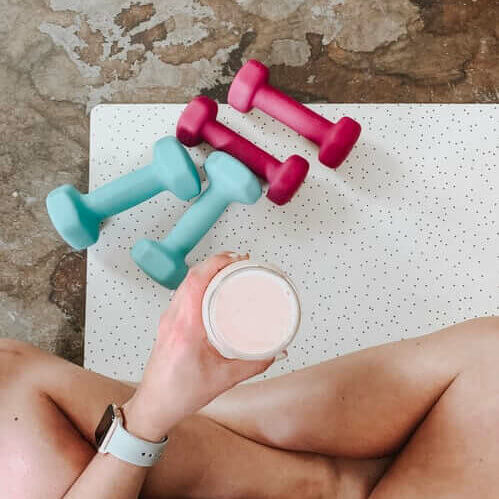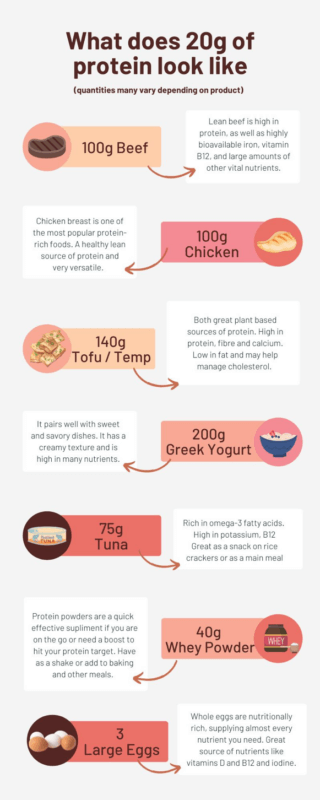Protein Power – Why it is important & how much you really need?

Long gone are the days where getting enough protein was only a focus for body builders. We now know that understanding your protein needs is critical for everyone, especially busy mums.
There’s a lot of talk about the P word but what exactly is protein? Why do you need it? And how much should you be aiming for?
Protein is present in every cell in the body and required for the growth and maintenance of our tissues and organs. This includes building and maintaining strong muscles so we can keep up with our little ones now, and stay stronger for longer to see them grow-up.
It is an important part of a healthy diet as one of the three key macronutrients; protein, carbohydrates and fats. We need all three for our bodies to function properly.
Protein is found in meat, eggs, nuts, seeds, legumes, grains and dairy products.
Three Reasons to Get Your Protein In
- Provides long lasting energy
Protein creates long lasting stable energy as it takes longer to process than carbohydrates or fats and doesn’t spike your blood sugar levels. Consuming protein regularly throughout the day will give you the energy you need to get through everything you do as a mum, without the temptation of finishing the kids leftovers. Set your day up for success and start with a high protein breakfast. - Healthy weight management
Protein is critical to healthy weight management, strong bones and ligaments and preventing injuries and falls. When aiming to lose weight we will inevitably lose some muscle as well as fat. We want to minimise this as much as possible because muscle is so important. If weight loss is a goal, prioritizing protein should be at the top of the list to keep you, strong, full, happy and not snappy! Another great benefit is foods that are high in protein are often less processed. A simple way to work towards a healthy balanced diet is to prioritize protein and vegetables when filling your plate. This also sets a great example for our kids. - Build and maintain muscle
It is literally impossible to build or maintain muscle as you age if you’re not consuming enough protein daily and doing some form of resistance training. Muscle gives us a healthy shape, assists in preventing injuries and keeps us strong so we can run, jump, and carry our children. As we age this becomes even more important due to age related muscles loss (known as sarcopenia) which starts around age 30 and accelerates rapidly after the age of 50. Many women are now having children later in life now so it’s important we know this, and share it with the other women in our lives. Pairing adequate protein intake with resistance training should be a goal for all women especially mums. The sooner you start, the better, as it gets harder with age.
So how much protein do you need?
How much protein you need is going to depend on the following; Age, height, weight, activity levels, and fitness goals.
Here is a general calculation to give you an idea, however the best thing to do is consult a nutritionist, dietician or personal trainer for some guidance for your personal circumstances.
A general guide is to multiply 1.6 – 2.2 x your body weight or target body weight. Eg: 1.8 x 70kg = 126g of protein per day.
Aim for 1.6 at the lower end if you simply want to get a baseline or you’re not currently getting much and you want to increase your intake.
You may want to aim for 1.8 or higher if your goal is to build muscle, lose weight or you are over the age of 50
Three Ways to Get More Protein in Your Diet
- Start Early
Include protein in your breakfast. Instead of just toast or cereal try adding or swapping to;
– Eggs and baked beans
– Greek yogurt with nuts and seeds
– Protein shake or bar - Include protein in your snacks
– Tuna on rice cakes
– Hummus and veg sticks
– Apple and peanut butter - Get educated. Aim for 20-30g of protein per meal

Connect with Becky to find out more Find Your Fit
Becky Dadswell runs Find Your Fit in New South Wales, . Learn more about Becky and Book your Trial today.
